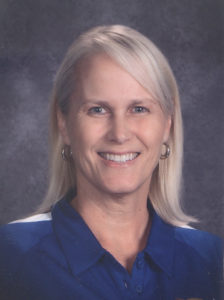By Rick Phillips, Founder, Community Matters
Social-emotional development is not in competition with academics
– in fact it is integral to academic success.
The impact of the COVID-19 pandemic and the related losses is not seen in the death toll alone. It has also taken a terrible toll on our country’s students, families and school staff. Educators everywhere report that social isolation and loneliness is negatively affecting our students and contributing to failing grades and declining mental health. As reported in Education Week, a survey by America’s Promise Alliance of 3,300 teenagers in June found that they are much more concerned than usual about their health and the health and financial stability of their families.
- Over a quarter of teens said that they are losing more sleep, feeling more unhappy or depressed, feeling under constant strain, or losing confidence in themselves.
- Forty percent said they had not been offered any social or emotional support by an adult from their school while their school buildings were closed last spring.
Unfortunately, there is no simple answer or a single curriculum to effectively address the issues of disconnection and uncertainty. What we know is that the most constructive way to deal with issues of anxiety, depression and isolation is through connection – connecting with friends, family and trusted others. Therefore, school leaders must develop and implement innovative school-wide SEL plans, plans that help children and young people feel connected, stay positive and remain hopeful.
The good news is there are many organizations including CASEL and others, who have developed strategies, resources, tools and activities that effectively address social and emotional learning and support academic achievement.
Here at Community Matters, our dedicated team has been developing practical and easy-to- use SEL resources as well as converting many of our current SEL and youth voice programs into a virtual platform that can support schools while distance learning.
The following are some of the strategies and actions that Community Matters recommends and provides to schools as part of effective SEL planning while distance learning.
- Use inquiry as a teaching practice – encourage all teachers to ask questions as a way to build and strengthen trust with students as well as provide them with the opportunity to share their feelings and issues
- Focus on self-care – Help students identify self-care practices that they can utilize while learning from home, such as exercise, journaling, engaging in art and music, etc.
- Teach mindfulness – Help teachers increase their capacity to provide age-appropriate best practices of mindfulness including, breathing, meditating.
- Encourage journaling – Introduce the value of gratitude journaling as well as journaling feelings, concerns, hope and wishes.
- Buddy Up – encourage students to pair up with a fellow student and help each other with both schoolwork and feeling connected.
- Empower students – provide opportunities for students to engage in meaningful activities and volunteering, knowing that committing to something that’s greater than oneself contributes to improved emotional health.
- Use music and art – provide ideas and resources for utilizing music and art while learning from home.
- Use restorative practices – use community building listening circles to support students to share and connect and affective statements in dealing with student behavior.
- Provide resources for addressing mental health issues – identify and share how to access hot lines, podcasts, websites and help students also identify trusted adults in their lives they can reach out to.
While many of these ideas seem clear and understandable to some, there are some teachers and staff who do not have experience teaching SEL and as a result are uncomfortable in that domain. The key to overcoming their reluctance and gaining their buy-in is to provide them with the resources, support and time to learn and to deliver these essential SEL practices.
Community Matters stands ready and committed to assist educators with support and resources by:
- Providing a no-cost “discovery session” which will assist educators in assessing what’s working, what’s not and what needs to be done to have an effective SEL plan in place
- Providing best practice professional development training, both on-line and in-person
- Providing best practices for gaining school-wide buy-in and delivering online training for administrators and other key staff
Students across our country are struggling in the upside down COVID-19 world. It is difficult, if not impossible, for them to focus and to process academic information with brains that are anxious, stressed and distracted. If we want students to pass tests and maintain their academic achievements, we need to double down on efforts to create a positive school climate and address the emotional welfare of the students in our care.
By making social and emotional learning a top priority, and having a well-developed SEL plan, students can emerge from this pandemic with greater resiliency, secure in the knowledge that they have adult allies at school who are there to assist them. When this social-emotional foundation is firmly established, students will be better able to focus, participate, achieve and even thrive. The positive relationships they develop and the caring culture that evolves will have life-long benefits for us and them, long after the pandemic is over.
Contact Community Matters for your no-cost discovery session and learn more about our programs and services at community-matters.org.

Rick Phillips is renowned for his expertise and extensive work in the field of school safety and school climate improvement. He is the founder and former Executive Director of Community Matters, and is the lead developer of the evidence-based program Safe School Ambassadors® (SSA), implemented in over 2,000 schools across 43 states in the U.S., Puerto Rico, Canada, Japan, Paraguay and Guam.
Rick earned his Master of Science Degree in Education from the University of Southern California, where he was a recipient of a United States Office of Education Fellowship. He has been a principal and teacher at elementary, middle, and high schools, a school district and county office of education administrator, and a Regional Director at the Healthy Kids Center for the California Department of Education.





 his training is led by Laurie Stanton, Community Matters Trainer. Laurie has been a Safe School Ambassadors® and Restorative Practices trainer for many years and has used Restorative Practices within her classroom, her school site, and now within other districts. She firmly believes that relationship building with each student is the key to a better classroom culture, school climate, and community as a whole.
his training is led by Laurie Stanton, Community Matters Trainer. Laurie has been a Safe School Ambassadors® and Restorative Practices trainer for many years and has used Restorative Practices within her classroom, her school site, and now within other districts. She firmly believes that relationship building with each student is the key to a better classroom culture, school climate, and community as a whole.
